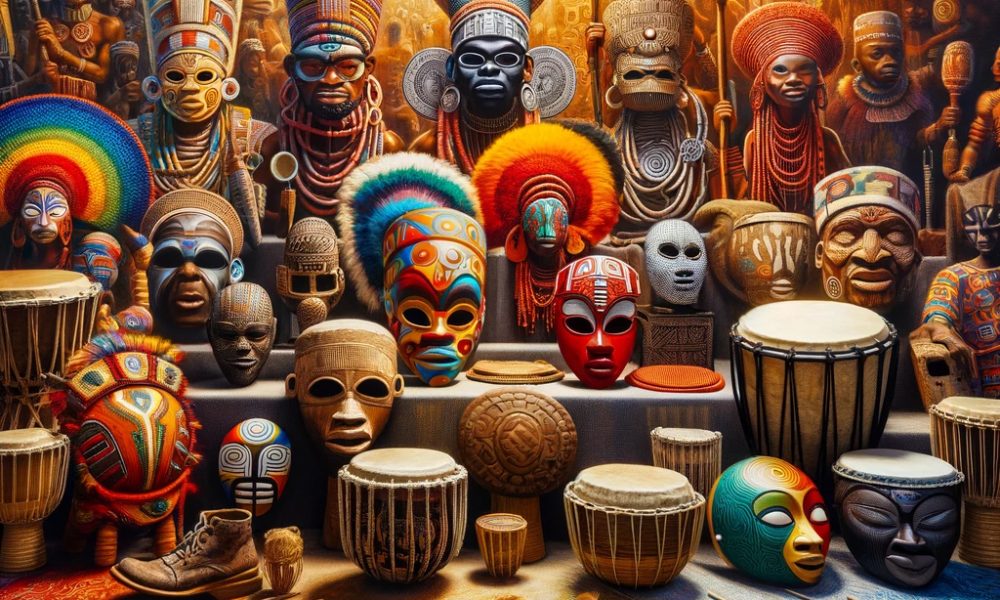Culture and Entertainment
Igbo Culture: An Emblem of Nigerian Heritage

Nestled within the heart of Nigeria’s ethno-cultural diversity, the Igbo people, also known as the Ibo, represent one of the country’s largest and most vibrant ethnic groups. Their profound cultural heritage, characterized by distinctive languages, customs, traditions, and artistic expressions, contributes significantly to the rich mosaic that is Nigerian culture. This essay explores the various facets of Igbo culture, highlighting its significance not only within Nigeria but as a source of fascination and inspiration globally.
Language as the Soul of Culture
The essence of Igbo identity is deeply rooted in its language. Igbo, a tonal language with a complex grammatical structure, is spoken by millions across Nigeria and beyond. More than a mere tool for communication, the Igbo language is a critical vehicle for cultural preservation. It carries the weight of history, traditions, and ancestral wisdom, passing these treasures down through generations and ensuring the continuity of Igbo linguistic heritage.
Weaving the Social Fabric: Customs and Traditions
Igbo society is richly textured with customs and traditions that trace back through generations. These practices are the threads that weave the social fabric, guiding the community through life’s milestones, from birth to marriage, and even in death. Traditional Igbo weddings stand out as a vibrant celebration of unity, encapsulating the elaborate rituals and ceremonies that symbolize the joining of two families. Through these customs, the Igbo people maintain a tangible link to their ancestors, preserving the essence of their communal life.
The Palette of Igbo Artistry
The Igbo’s rich artistic traditions are a vivid testament to their creativity and cultural depth. Music and dance, characterized by lively rhythms and energetic performances, play a pivotal role in Igbo cultural expression. Instruments like the udu and ekwe underscore the community’s musical heritage, providing the soundtrack to ceremonies and celebrations. Dance, likewise, is an integral part of Igbo tradition, embodying the spirit and vitality of the people. Beyond performance arts, Igbo visual arts contribute to the community’s artistic legacy, showcasing the ingenuity and craftsmanship of its people.
A Mosaic of Beliefs: Religion in Igbo Culture
The spiritual landscape of the Igbo is a mosaic of traditional beliefs, Christianity, and Islam, illustrating the community’s religious diversity and syncretism. At its core, traditional Igbo religion encompasses a complex system of deities and spirits, reflecting the people’s connection to the divine. This indigenous spirituality coexists with Christian and Islamic practices, showcasing the Igbo’s adaptability and the interweaving of various religious traditions.
The Flavors of Igbo Cuisine
Igbo cuisine mirrors the agricultural richness of their homeland, offering a spectrum of flavourful dishes that celebrate local produce. Staples like yams, cassava, and plantains are the foundation of Igbo culinary tradition, accompanied by soups and stews rich in locally sourced ingredients. This cuisine is not merely about sustenance but embodies the cultural identity and community bonds of the Igbo people.
Conclusion
The Igbo culture is a living tapestry, vibrant with the colours of tradition, language, art, spirituality, and culinary artistry. It stands as a testament to the resilience, creativity, and dynamic spirit of the Igbo people. As this culture continues to inspire and resonate beyond the borders of Nigeria, it reaffirms the enduring and evolving legacy of Igbo heritage. In the global cultural landscape, the Igbo community remains a beacon of cultural richness, diversity, and human creativity, embodying the essence of Nigerian and African identity at large.